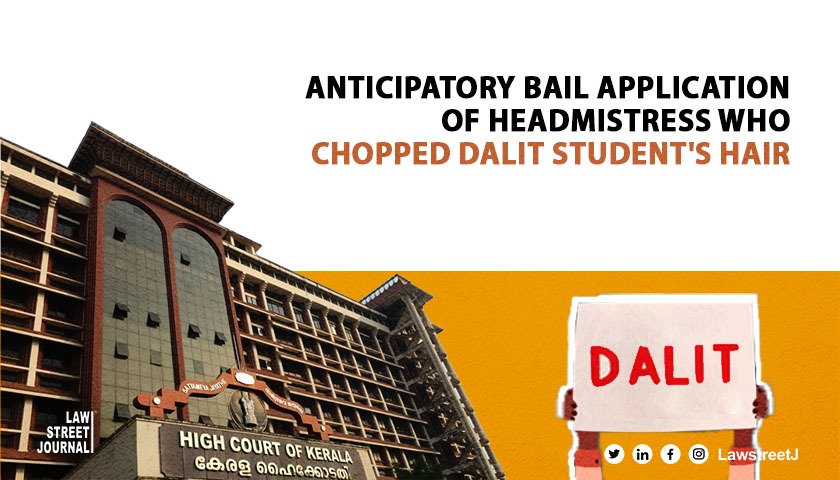KOCHI: The Kerala High Court recently granted anticipatory bail to a school headmistress accused of wilfully humiliating a 5th grade student from the Scheduled Tribe (ST) community by forcibly cutting his hair during an assembly.
She was booked under provisions of the Scheduled Castes and the Scheduled Tribes (Prevention of Atrocities) Act, 1989 & the Juvenile Justice (Care and Protection of Children) Act, 2015. A Kasaragod sessions court had earlier dismissed the accused teacher's anticipatory bail plea, and so, she approached the High Court.
Before the High Court, it was argued that the headmistress was well aware of the of the fact that the student belonged to an ST community. The incident allegedly caused the victim and his sister to be reluctant to attend school in the following days.
The accused teacher's counsel, however, claimed that she had just implemented punishment for the child's growth and development. The headmistress also stated that she had personally visited the child's house to convince him and his sister to return to school after being missing for a few days.
Her counsel further claimed that a fraudulent case was brought against the headmistress at the request of certain other parties, owing to rivalry between aided schools
Mens rea doubtful: HC
In the judgement, Justice K Babu expressed doubts on the mens rea element of the appellant headmistress. In legal sense, mens rea refers to the criminal intent
On an analysis of the facts placed before this Court, I am of the view that the mens rea of the appellant in the commission of the alleged acts is doubtful. At the most, it could be seen that the appellant being a school teacher having disciplinary control over the victim exceeded in the corporal punishment on the victim. Therefore, I am of the view that there is no prima facie material to attract the offences under the SC/ST (PoA) Act.
With regard to Section 75 of the JJ Act (Punishment for cruelty to Child), the Court noted that the accused had material before the Court which create doubt regarding her mens rea in the commission of the offence.
Further, the court noted that the appellant was neither absconding nor were there materials to show that the appellant attempted to influence the course of investigation or tamper with the evidence.
Also, further bearing in mind that even the teacher's colleagues did not support the charges against her, the High Court proceeded to allow the anticipatory bail application.








![Kerala HC Quashes 498A Dowry Harassment Case Against Live-In Partner, Citing Lack of Relative Status [Read Order]](/secure/uploads/2023/08/lj_5693_1057c042-1e57-4e27-8c9e-25af0ec38ec4.jpg)
![Watching porn on mobile: Kerala HC highlights importance of mother cooked meals, outdoor sports [Read Order]](/secure/uploads/2023/09/lj_9155_Parental_supervision_of_mobile_phone_usage.jpg)
![Lakshadweep MP Mohammed Faizal Disqualified from Lok Sabha After Conviction Suspension Plea Rejected by Kerala High Court [Read Notice]](/secure/uploads/2023/10/lj_9640_87b5fd97-0e05-4ff8-9a99-3be1e4446192.jpg)




